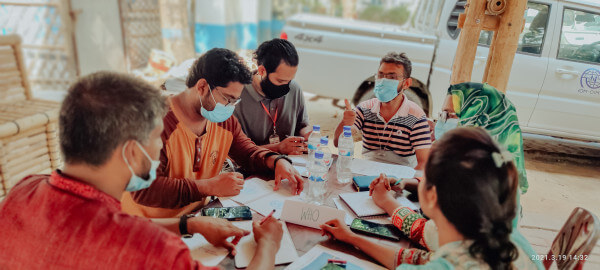It is with excitement that we announce the successful end to two major DWW healthcare projects in Bangladesh: the PGF (Postgraduate Fellowship in Migrant & Refugee Health) Cohort E Programme, and the DICE (Doctors Worldwide Improving Care in Health Emergencies) Cohort B Programme. A big congratulations to all of the participants who committed their time and effort to improve their skills and knowledge on comprehensive healthcare topics in humanitarian primary care and emergency care.
This programme enhanced access of the vulnerable Rohingya and local host population to comprehensive primary healthcare and emergency services in the makeshift settlements, with particular focus on quality improvement, reducing bottlenecks and improving efficiency, better management of non-communicable diseases and maternal/child/newborn health, and overall impacting the quality of healthcare being offered in the camps.
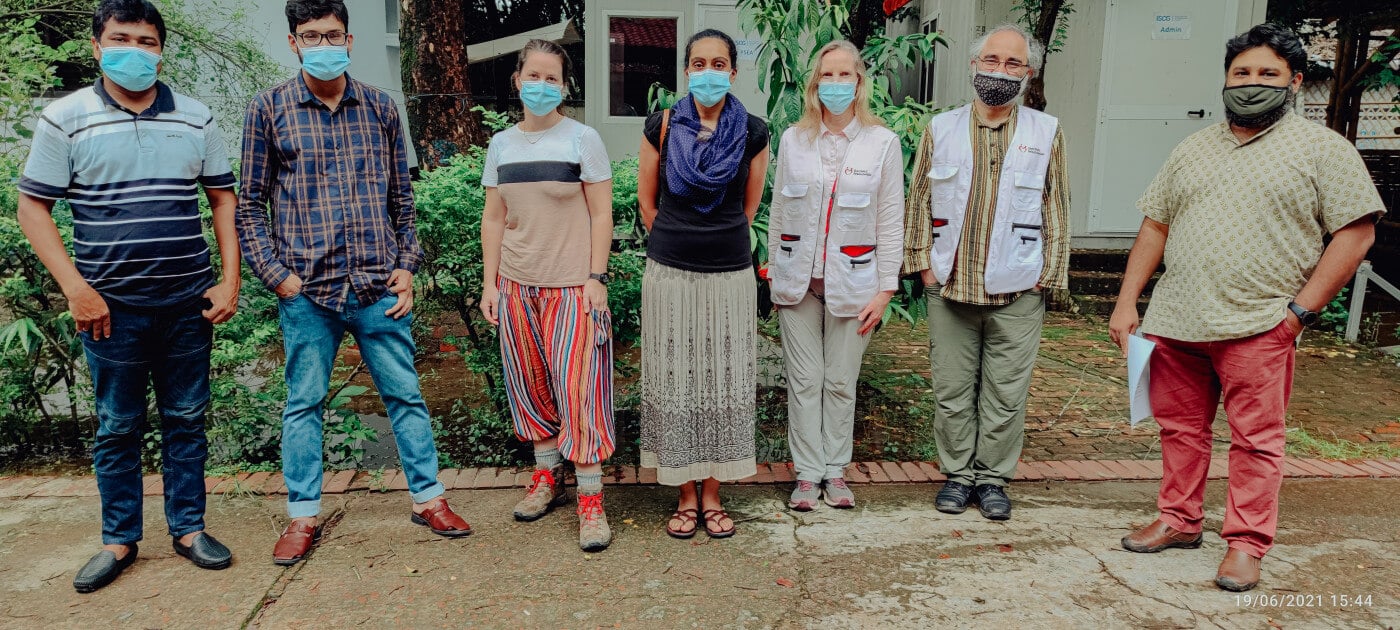
Image description: our deployed medical faculty, in addition to our Training Programme Director, Dr Mir Ahmad (far right) and Field Coordinator, Sayeed Ahmed (second from the left).
We could not have achieved this milestone without our hardworking medical faculty and experts. We deployed 7 medical experts, with backgrounds in Emergency Medicine, Obstetrics & Gynaecology, Gender-Based Violence & HIV, Paediatrics, Primary Care and Intensive Care and received support from 32 medical specialists online to contribute to both the PGF and DICE programmes.
Postgraduate Fellowship in Migrant & Refugee Health
For our PGF programme, we recruited a mixed cohort of 30 Bangladeshi medical doctors, representing 7 different local, international & governmental organisations. They participated in 8 online learning modules consisting of:
- Introduction to Health in Humanitarian Crisis
- Triage and Acute Care Management Emergency Care and Triage
- Communicable diseases in Humanitarian Crises
- Non-Communicable Diseases and Palliative care
- Mental health in humanitarian emergencies
- Sexual and Reproductive Health, Family Planning, and Gender Based Violence, Maternal and Child health
- Clinical Assessment, Professional Practice, and Professional and Communication skills
- Clinical Leadership & Governance
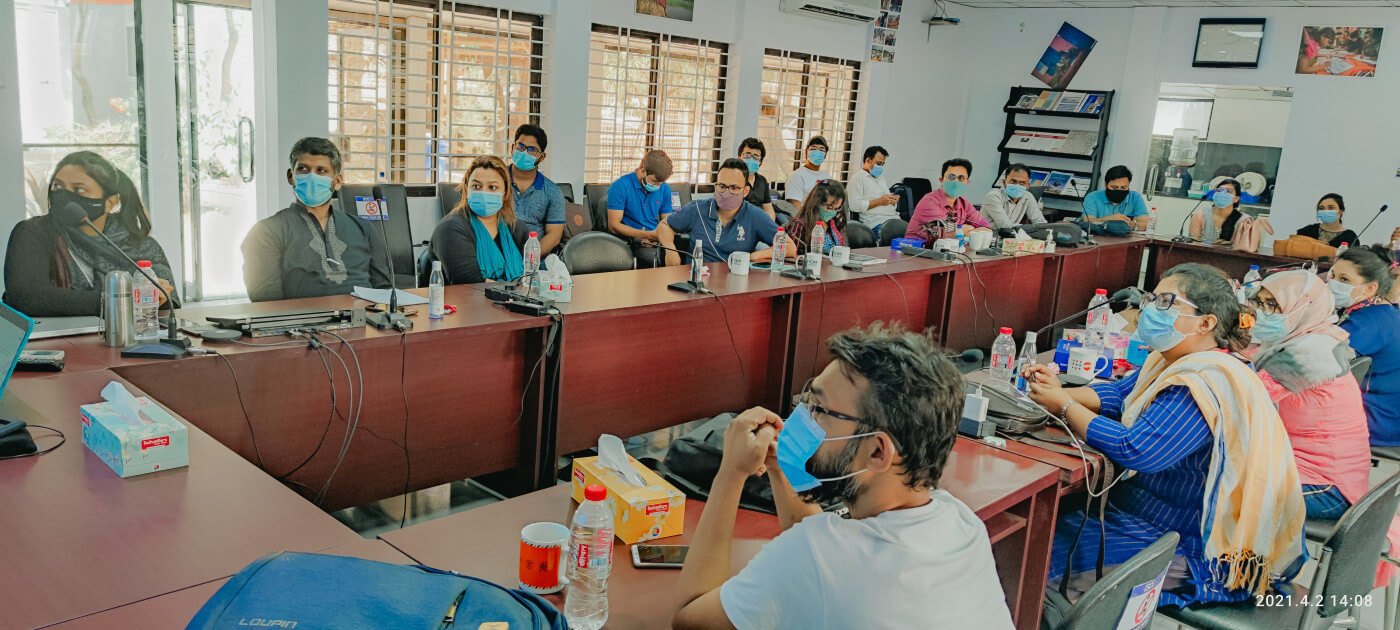
Image: a PGF training session, pre-COVID19 lockdown restrictions
Speaking about her experience, Dr Sumaya Tasnim credited the PGF Programme for giving her the courage to do a Master’s in Public Health and pursue a career in humanitarian work, saying: “PGF is unique in many ways. In all the training I had previously, they only focused on improving our clinical knowledge, but the PGF focused on our clinical and other skills and knowledge, including our leadership & governance class which was interesting. It provided us the opportunity to learn how to combat things that we are seeing – we did not know there is a path we can follow using different techniques. It has improved our knowledge.”
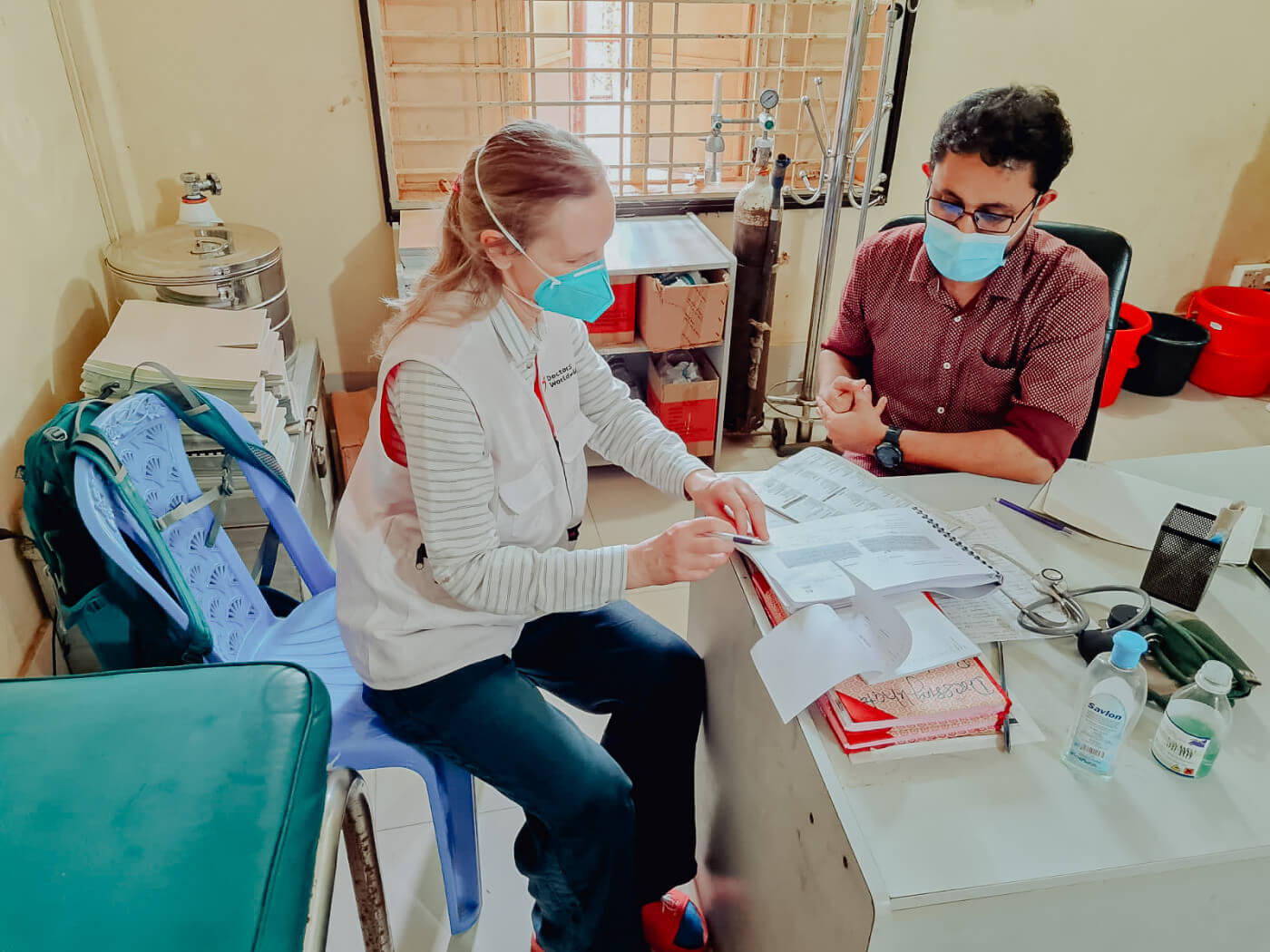
Image: Dr Una Fahy during a PGF clinical shadowing session
Overall, with PGF:
- 30 participants fully trained and passed
- 16 weeks consisting of 34 sessions (in-person and online) 86,400 patient consultations benefited from participants who attended the PGF programme 339 clinical shadowing and mentorship sessions completed by our medical faculty
- 120 certificates distributed including:
- Emergency, Triage, Assessment and Treatment (ETAT) (RCPCH online)
- John Hopkins University Public Health in Humanitarian Crises 1 (Coursera online)
- Minimum Initial Service Package (MISP) for sexual and reproductive health in crisis situations (Inter-Agency Working Group online)
- Doctors Worldwide Postgraduate Fellowship (PGF) in Migrant and Refugee Health Certificate
- 100% participants stated they have been able to identify new health initiatives in their clinic
- 96% participants stated they feel more empowered to be a leader in their work
- The majority of participants stated their skills, knowledge and confidence has improved/improved greatly in the taught subjects/themes.

Image: (from left to right) Dr Mir Ahmad (Training Programme Director), a PGF participant, and Sayeed Ahmed (Field Coordinator)
Doctors Worldwide Improving Care in Health Emergencies
Through DICE, we trained a cohort consisting of 54 medical doctors, nurses, medical assistants and clinical managers representing UN IOM. They participated in various learning aspects of the DICE programme including DICE intensive lecture days (online), BLS (Basic Life Support) and Advanced Life Support (ALS) training, and clinical mentorship and facility improvement activities surrounding EU care. In addition, our team supported 3 emergency units in 24/7 clinics in the field through clinical mentorship and facility improvement plans to improve emergency care services.
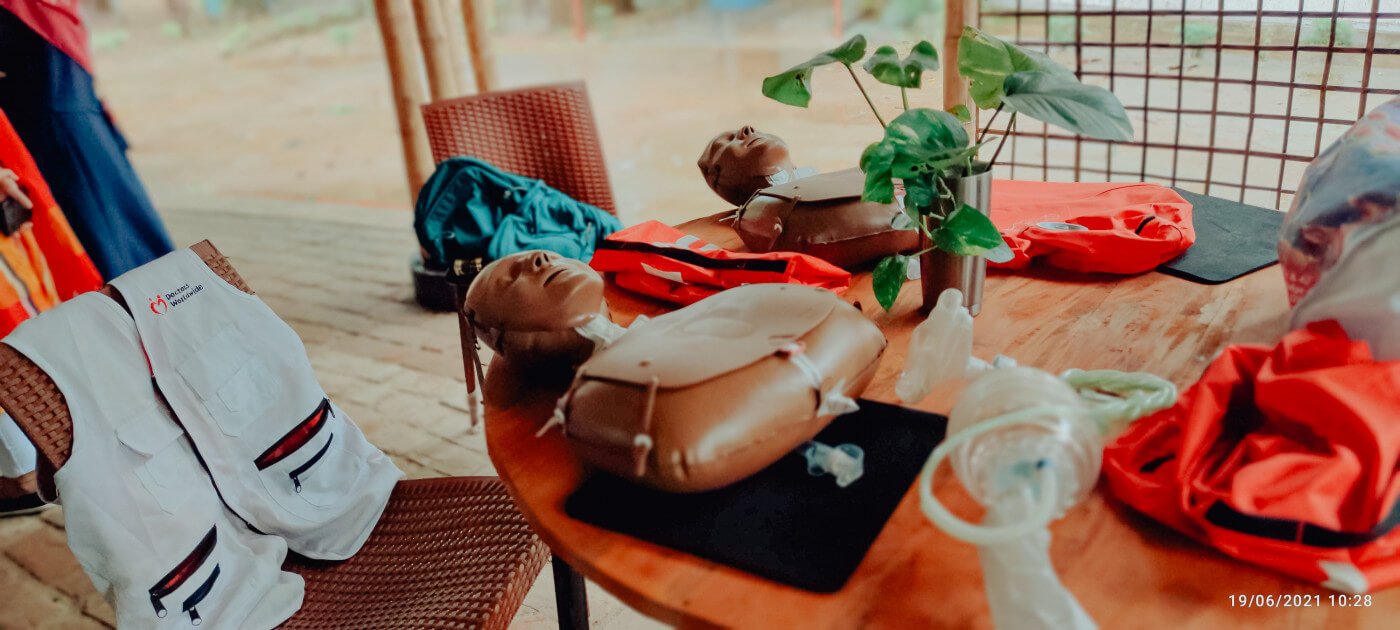
Image: equipment from a Basic Life Support & Advance Life Support training day with DICE participants
Overall, with DICE:
- 3 full days (25 units) of intensive learning focusing on Emergency Care
- 1 BLS and ALS skills day with 45 certificates distributed
- 3 facility improvement plans for 24/7 Primary Care Centres in the camps with emergency units created and implemented by our team to support clinical staff .
- 7 Quality Improvement Projects (QIPs) surrounding emergency care developed and presented at our Scientific Day by our participating doctors, nurses and medical assistants, QIPs implemented in their clinics included:
- Improving Patient Followup for Emergency Unit cases
- Improving referral system process in the refugee camps
- Refurbishment of ABCDE trolly bag in the EU
- Decreasing wait times for patients
- Improving Flu Corner layout to decrease disease transmission
- Improving crowd control and decreasing transmission of COVID-19
- Safe Delivery for Mothers
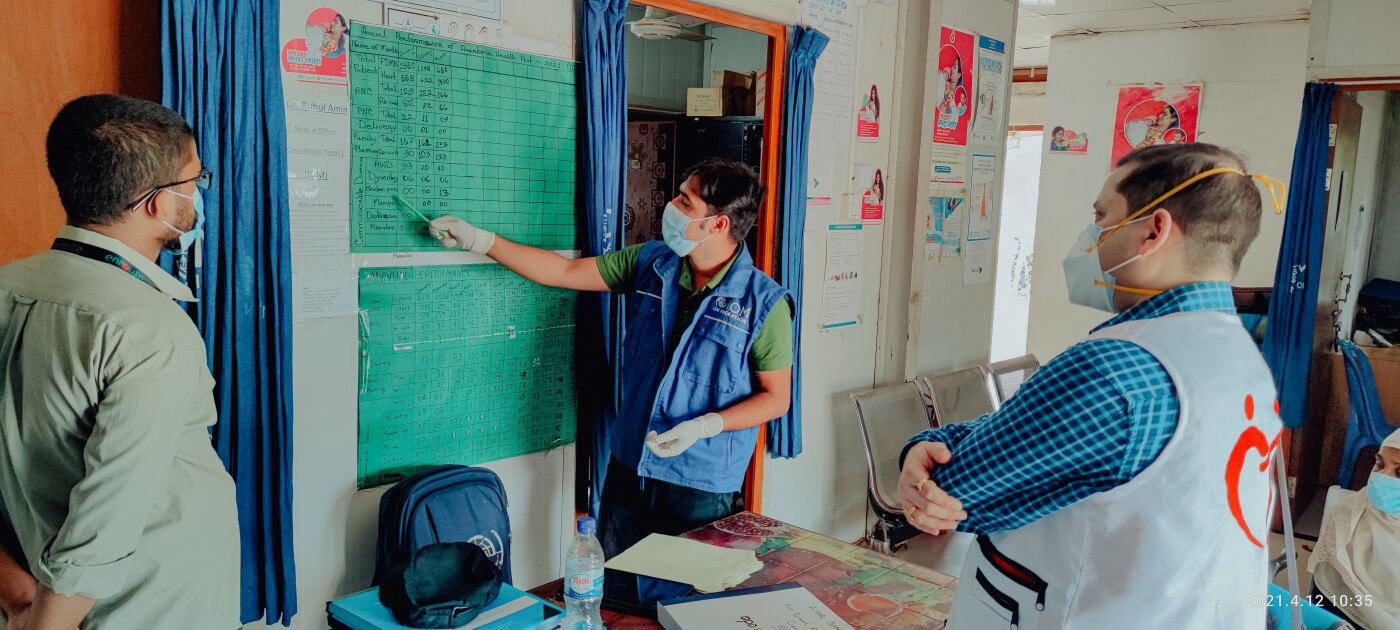
Dr Indranil Das, an Emergency Medicine Specalist, working with DICE participants to improve the emergency unit layout of 24/7 Primary Care Centres
A big thank you to our partner IOM for supporting this work.
To keep up to date with our projects, make sure to subscribe to our mailing list below, and follow us on social media (twitter, facebook, instagram, linkedin) for regular updates and campaigns!

DICE & PGF: Photo Gallery
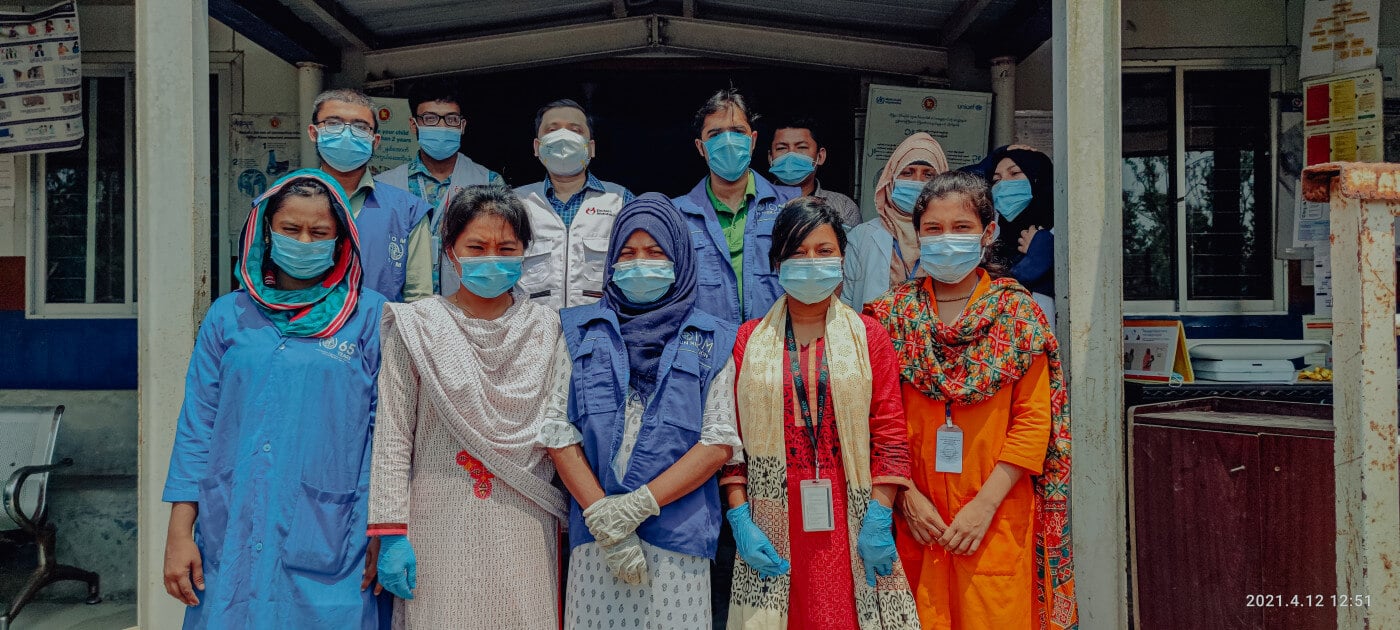
Image description: Dr Indranil Das with DICE Participants
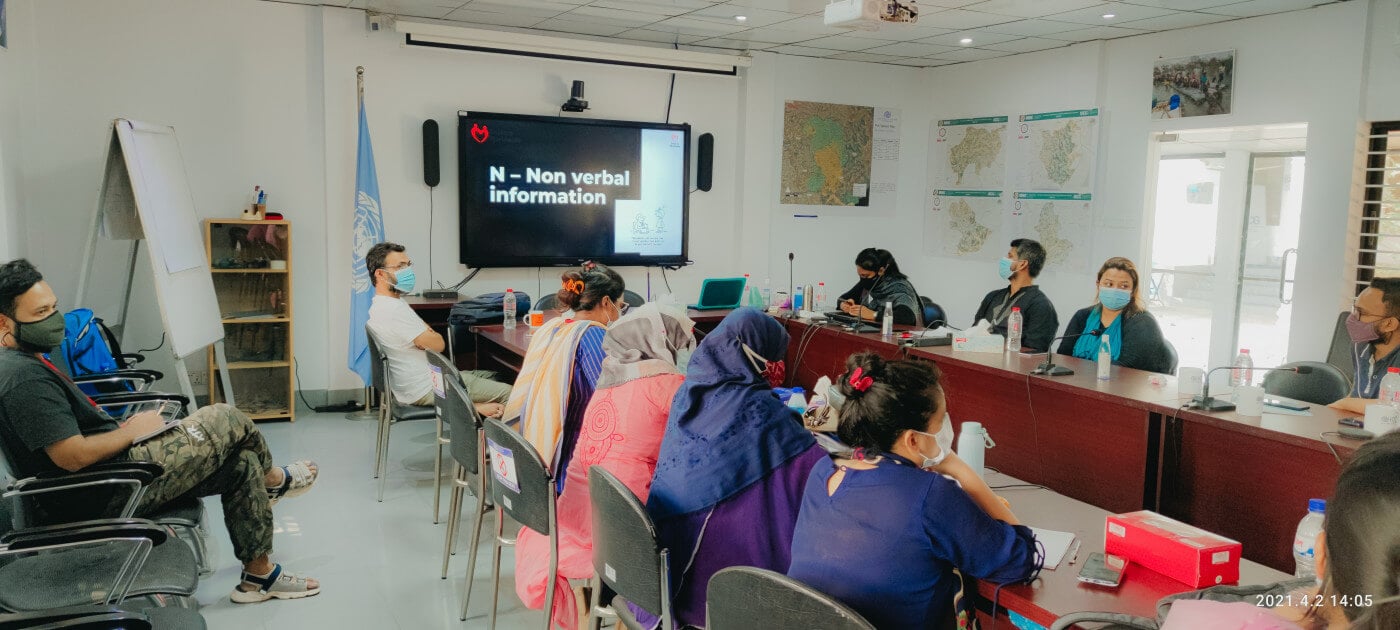
Images: PGF Learning Days
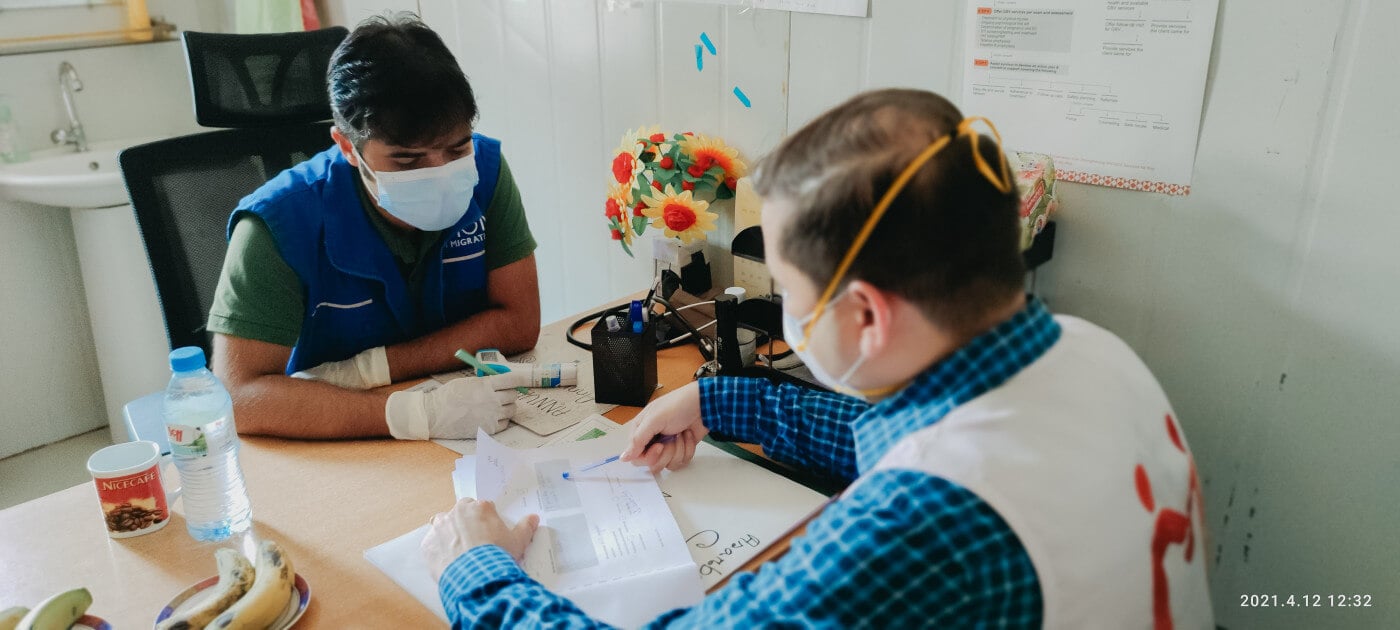
Image: Dr Das conducting clinical shadowing with PGF Participant
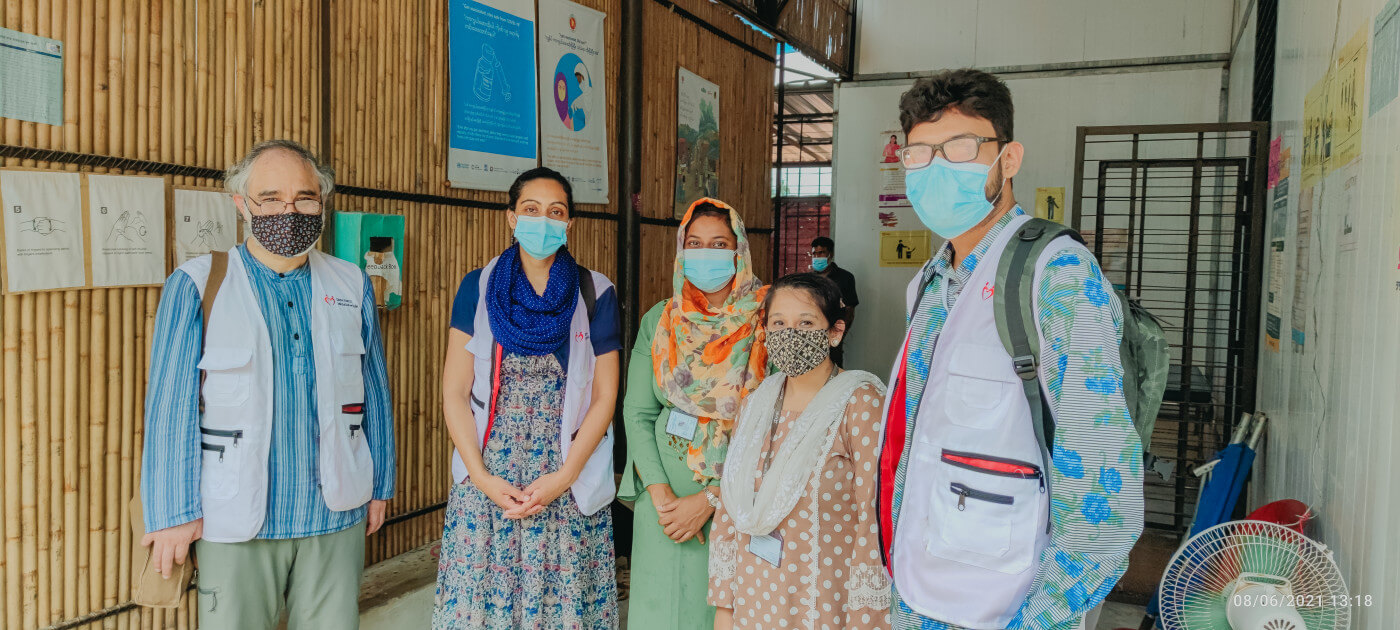
Image: (from left to right) Dr Hadi Mohseni (Paediatrics Specialist), Dr Nadia Ahmed (Sexual Reproductive Health/Gender Based Violence Specialist), two PGF participants and Sayeed Ahmed (Field Coordinator)
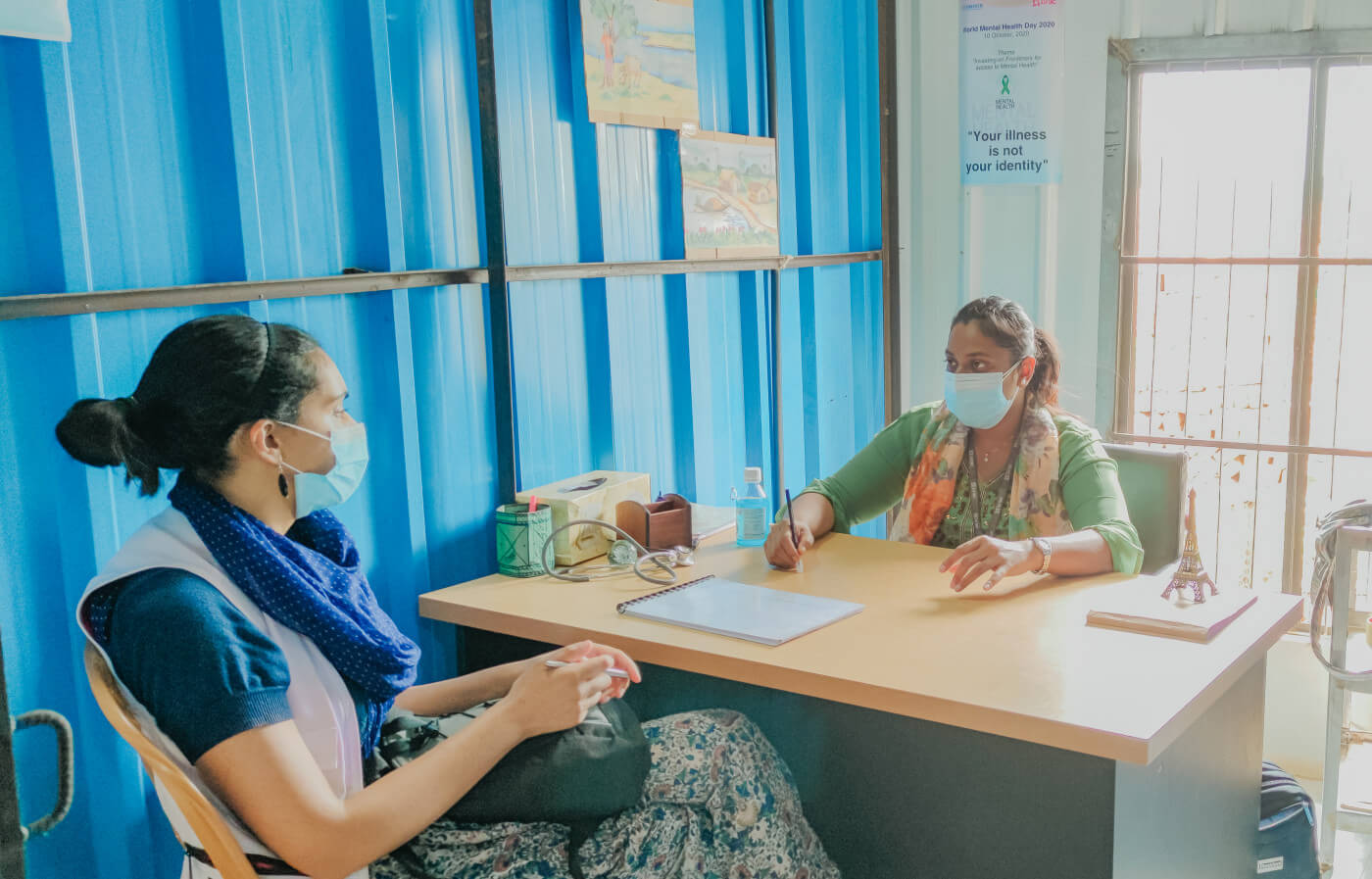
Image: Dr Nadia with a PGF participant, conducting clinical shadowing

Image: Dr Mir Ahmad (Training Programme Director) teaching at our Basic Life Support & Advance Life Support training day

